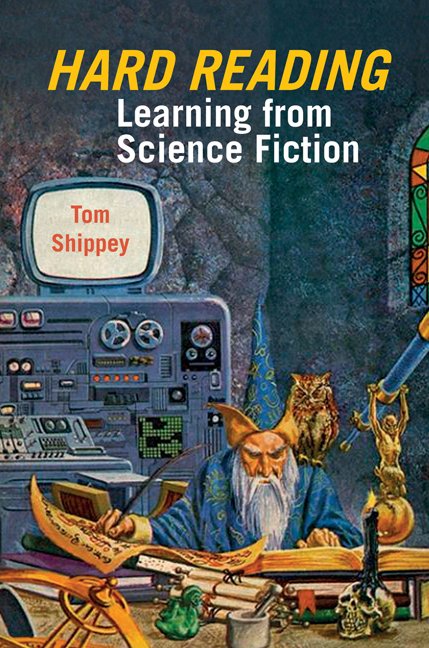Book contents
- Frontmatter
- Dedication
- Contents
- List of Figures
- Note on References
- A Personal Preface
- What SF Is
- SF and Change
- 4 Getting Serious with the Fans
- 5 Getting to Grips with the Issue of Cultures …
- 6 … And Not Fudging the Issue!
- 7 SF Authors Really Mean what they Say
- 8 A Revealing Failure by the Critics
- 9 A Glimpse of Structuralist Possibility
- 10 Serious Issues, Serious Traumas, Emotional Depth
- SF and Politics
- References
- Index
4 - Getting Serious with the Fans
from SF and Change
- Frontmatter
- Dedication
- Contents
- List of Figures
- Note on References
- A Personal Preface
- What SF Is
- SF and Change
- 4 Getting Serious with the Fans
- 5 Getting to Grips with the Issue of Cultures …
- 6 … And Not Fudging the Issue!
- 7 SF Authors Really Mean what they Say
- 8 A Revealing Failure by the Critics
- 9 A Glimpse of Structuralist Possibility
- 10 Serious Issues, Serious Traumas, Emotional Depth
- SF and Politics
- References
- Index
Summary
This piece started off as a 45-minute talk at the 1972 Novacon in Birmingham. In later years I became a regular performer on the Tolkien circuit in the USA, paid at rates far higher than anything in the UK academic world, can claim always to have given satisfaction, and also picked up awards for lecturing – another thing that was never forthcoming in the UK, no matter how good you were. Still, I don't think I have ever enjoyed myself more or reached the same level of form as I did back at successive Novacons. I was really into the material, it was the first chance I had ever had to talk about it publicly, the audiences were both supportive and argumentative … I wish I'd been able to keep it up. There were no doubt many reasons this was not possible, like being too busy myself, but I think one reason was a sort of underlying dichotomy within fandom. There were some fans who wanted to talk about science fiction (as I did), but there were others who really wanted to talk about being fans, or to set up ‘fanac’ (i.e., ‘fannish activities’), which would give them something to talk about in the future. I think the latter group became dominant: long talks about the roots of sf in intellectual quarrels in the nineteenth century – dull, drop them off the programme. It didn't always work like that, and I can remember still doing the same sort of thing, for instance, at the 1979 WorldCon in Brighton (another occasion where I was telling authors like Bob Shaw and Poul Anderson what they were really thinking, which for once went quite well), and again at the 1984 Eastercon in Leeds. But those talks were pre-computer, and the scripts have long since been lost.
This essay, however, was written up for Foundation, and then formed the basis of the entry on ‘History in SF’ in the first Clute and Nicholls Encyclopedia of Science Fiction (1979), still surviving, though much expanded and updated (twice) (1993 and 1999). The article has also been translated into French, as ‘L'Histoire dans la science-fiction’, in Gérard Klein and Daniel Riche (eds), Change: science-fiction et histoire (Paris, 1981).
- Type
- Chapter
- Information
- Hard Reading: Learning from Science Fiction , pp. 67 - 84Publisher: Liverpool University PressPrint publication year: 2016



